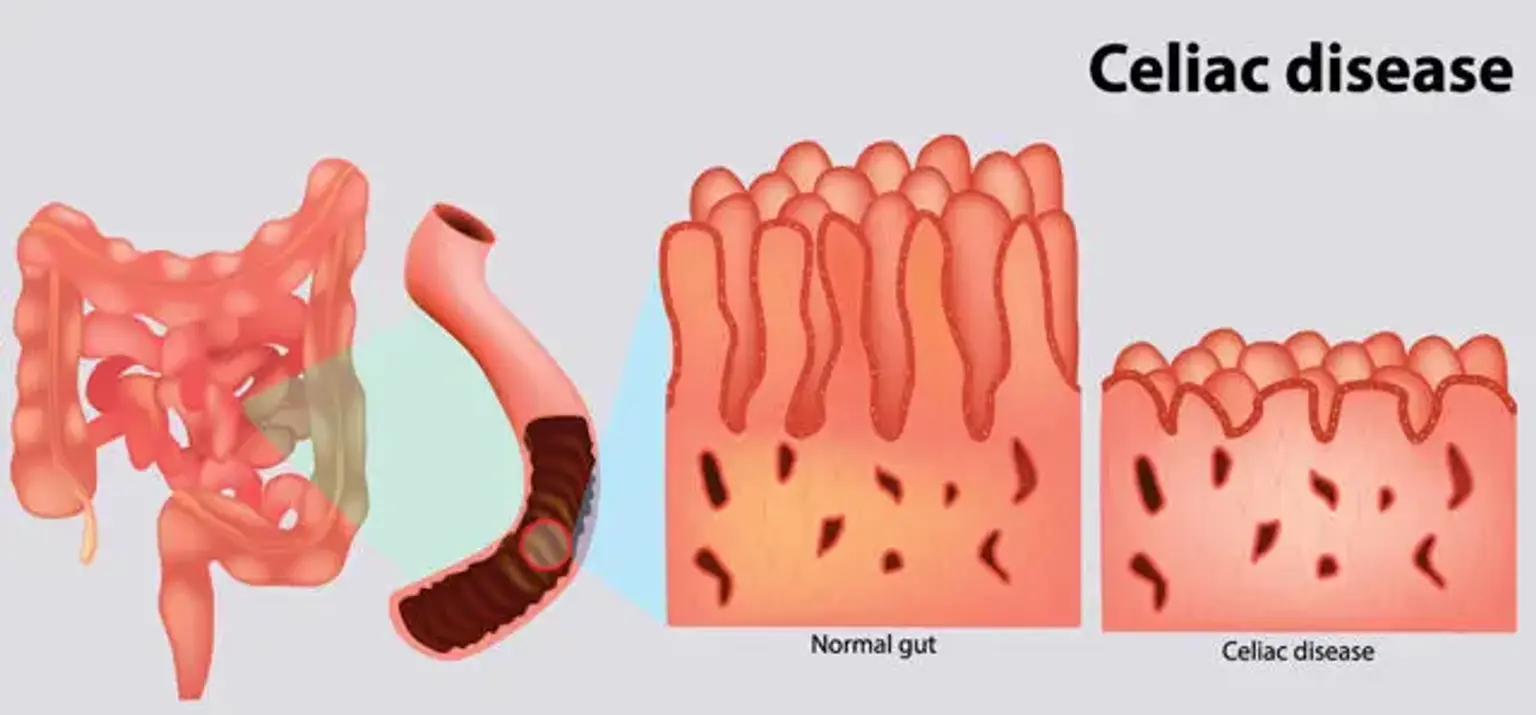Celiac disease
Celiac disease is also known as celiac sprue or gluten-sensitive enteropathy. It is an immunological reaction to gluten, a protein present in wheat, rye, and barley. Gluten usually causes an immune response in the small intestine in patients with celiac disease. Such a reaction destroys the lining of the small intestine with time, preventing it from absorbing certain essential nutrients (malabsorption).
Diarrhea, weight loss, exhaustion, anemia, and bloating are the common symptoms of intestinal damage, which can progress to significant complications. Malabsorption in children can impact their growth and development, in addition to triggering the symptoms evident in adults.
Celiac disease has no cure. However, maintaining a gluten-free diet might help control symptoms and enhance intestinal recovery in most patients.
